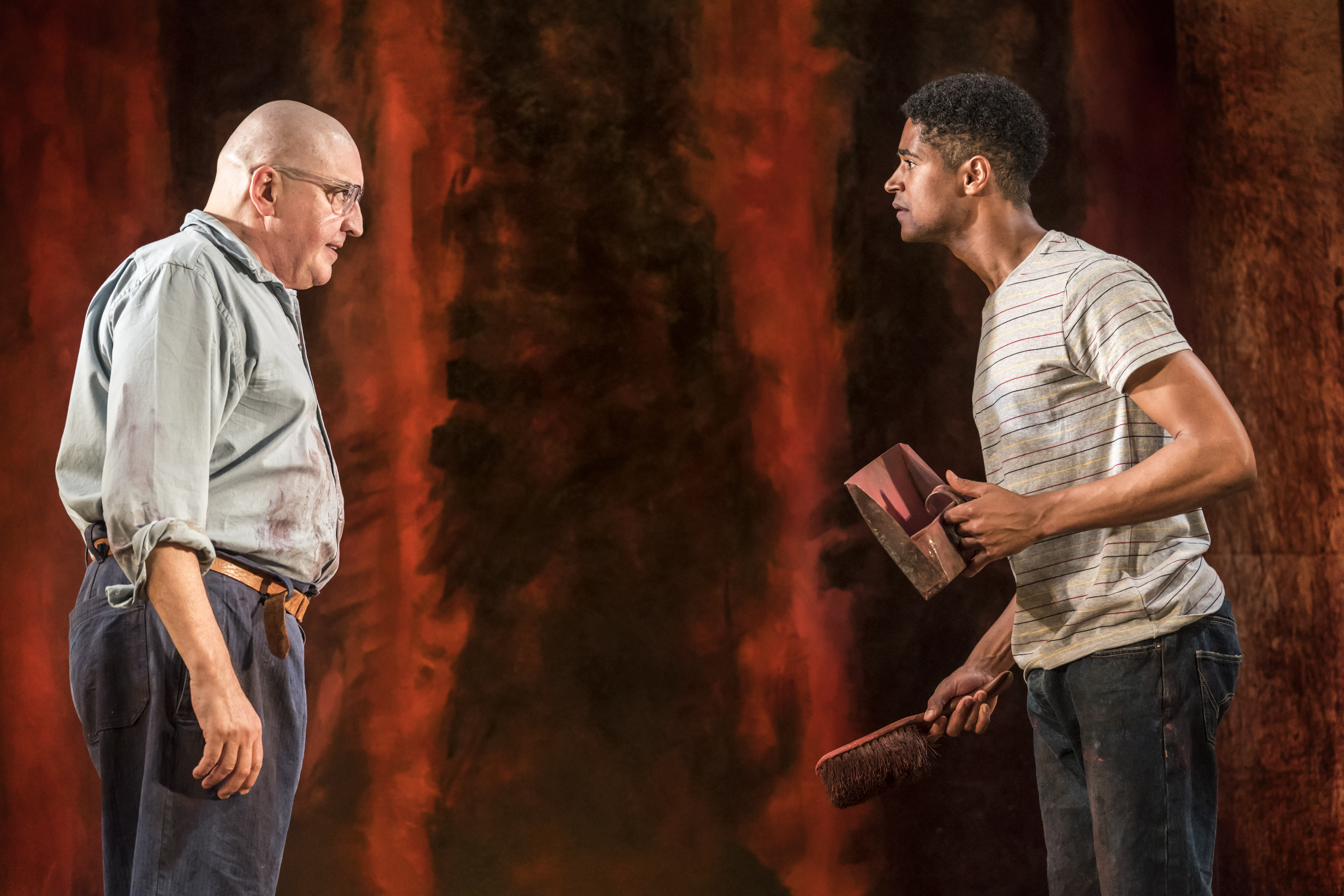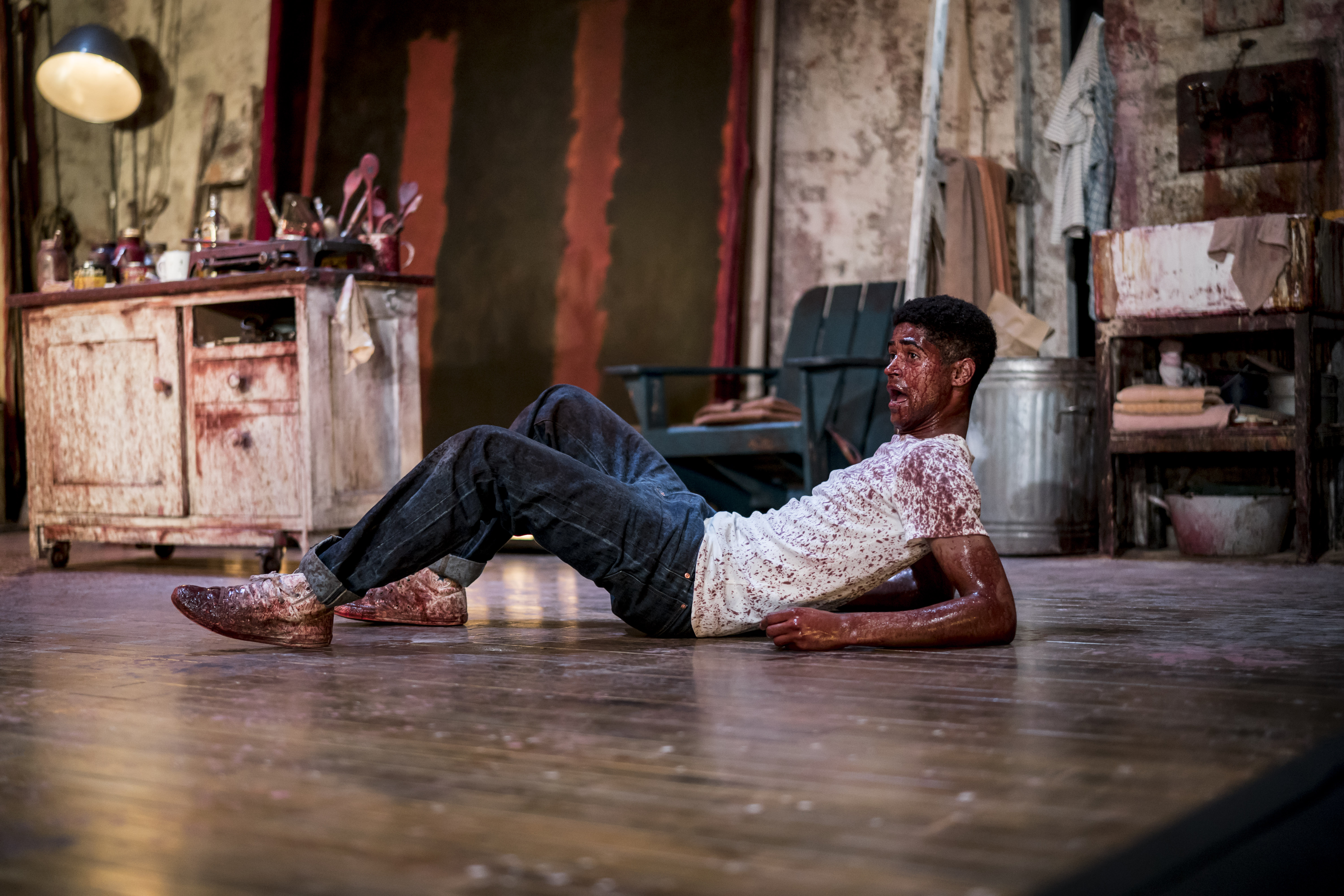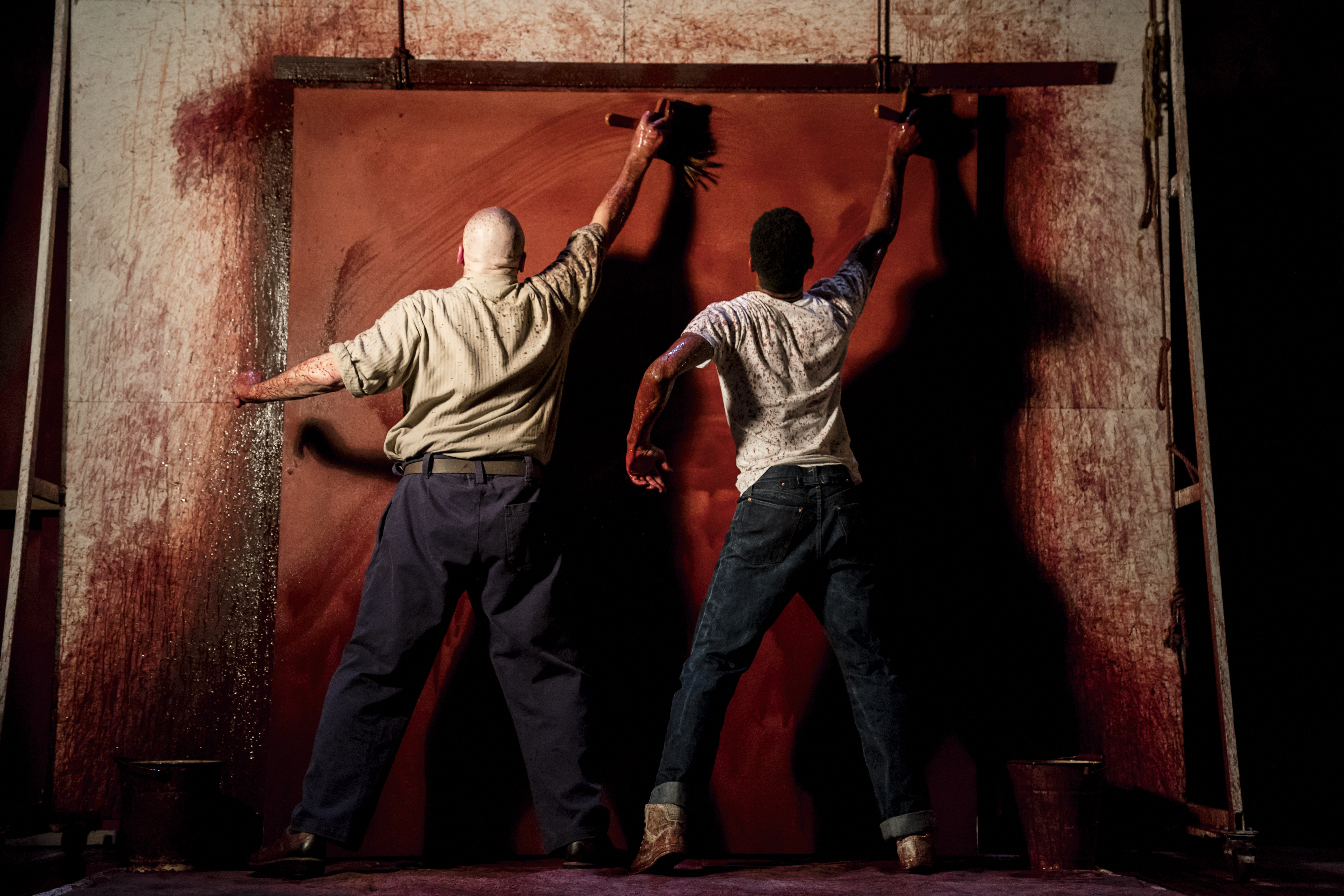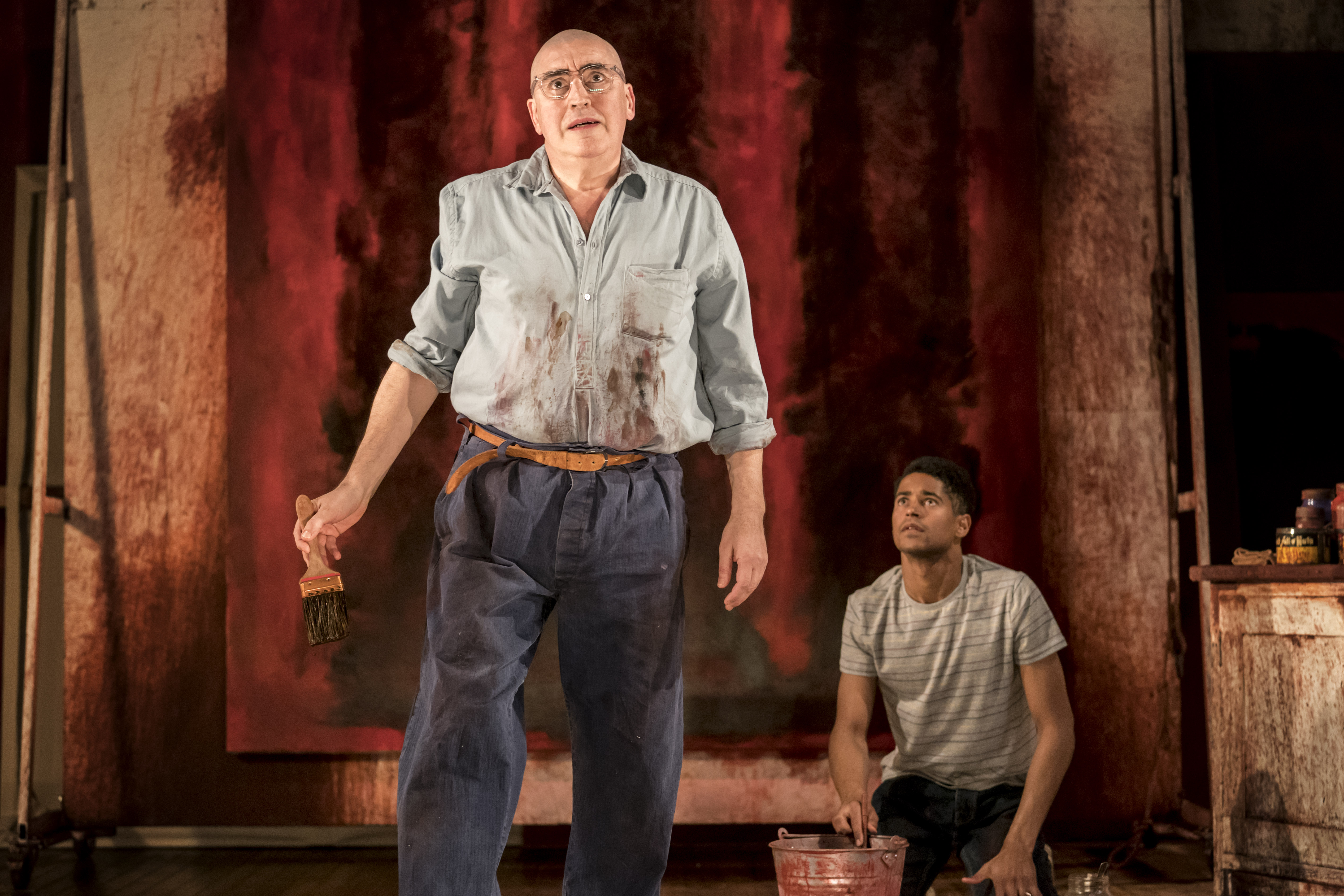When I met with Alfred Molina and Alfred Enoch last month [read interview], or Fred and Alfie respectively as they prefer, they were getting into character as Rothko and Ken for a new production of Red in the modest surroundings of Union Chapel. Red ostensibly tells the story of abstract expressionist painter Mark Rothko (1903 -1970) during his commission of murals for the Seagram corporation. But the story is not really about Rothko; his character is a vehicle through which we are invited to explore the perpetual struggle between ageing glory, and impatient youth. To see the production transferred to Wyndham’s Louis XVI grandeur, which can properly hold and light the approximated Seagram murals, grounds this wordy work in a much needed, and well appointed, realism.
Molina is reliably excellent, bringing humour and warmth to a character that in the hands of a lesser actor could be entirely alienating
Michael Grandage, directing Red for the fourth time, achieves this realism in several ways. Firstly, physicality is made to matter. The two Alfreds are both well over six feet, taking and talking up every inch of the set, which has been painstakingly and authentically converted into a sparse, working art studio. Alfie’s youthful energy and obvious beauty are played to contrast Ken from Rothko’s world-weariness and physical decline. Molina shaved his trademark thick, dark locks for the role and lumbered about the stage with Rothko’s heaviness weighing down his every step.
In Red’s most iconic scene Rothko and Ken prepare a blank canvas. They take their positions crouched at its base like Olympic runners, then attack it, wildly staining it in a bloody slather, ducking, diving and dancing around each other until it is ready. When they are spent, Enoch draped languidly on the floor, Molina crouched nearby, you understand the labour that is required of them to make something meaningful. Colour matters here.
Discussions of it and the way colour manifests in our lives drives the narrative and the motivations of the protagonists. Written by John Logan, the play takes its title from an argument in which Ken seemingly oversimplifies how he sees Rothko’s work by describing it as “red.” But red is not an empty colour to him, red is “sunrise…heartbeat. Red is passion. Red wine. Red roses. Red lipstick. Beets. Tulips. Peppers… Arterial blood. …Rust on the bike on the lawn. Dresden firestorm at night. The sun in Rousseau, the flag in Delacroix, the robe in El Greco…: A rabbit’s nose. An albino’s eyes. A parakeet.” Colour is not abstract in Red; it is what makes life, and by extension art, more tangible, more concrete.
How strange it is then, not to acknowledge Enoch’s colour in this production. Enoch was not cast for the colour of his skin, Eddie Redmayne originated the part of Ken. But once cast, Grandage who is so thoughtful with every other element of his production, does not consider how the image of Enoch’s brown skin and kinky hair informs how the audience experiences the dynamic between Rothko and Ken. As compelling as the performances are, one cannot suspend belief so profoundly that the image of a powerful white man demeaning and disrespecting a black man with limited power, is not steeped in a painful reality.
Grandage has painted himself into a corner with casting that is colour blind but not conscious. More than this, you can’t help but feel an opportunity was missed here. Like the first production, this Red keenly examines the tension between the two protagonists as a battle between old, lettered guard and the new, emerging counterculture. But Grandage had higher hopes; he wanted to return to the material anew, he wanted this production to reflect our times. The tension of our day is characterised by old, wealthy white men, trying desperately to hold onto the power that is being taken by people of colour, immigrants, women, LGBTIQ people. I think Grandage wanted with this casting, on some level, to say this but could not commit.
Enoch conveys Ken’s youthful naivety so convincingly – he is quite astonishing
But that is a single complaint in this otherwise well cast, talky two-hander. Molina is reliably excellent, bringing humour and warmth to a character that in the hands of a lesser actor could be entirely alienating in his quick anger and unimpeachable arrogance. He generously, unlike Rothko, makes space for his collaborator to shine. Enoch conveys Ken’s youthful naivety so convincingly in the first scenes, that when, in their final confrontation, Ken matches Rothko’s intensity, intellectualising and incendiary remarks, he is quite astonishing.
In this exchange alone, Enoch and Molina’s are made equal too. Grandage seems to have a sense of how these intellectual affectations weigh the production down, and he is wise to undercut them with brilliant scenes where the process of making art, such as the canvas above, take on a singular reverence. The lights change, the music builds, and the speechifying stops. In these moments, it was hard not to feel moved. It reminds us, not too subtly, that talking about art, theorising about art, or dare I say writing about art, pales, quite literally here, in comparison to allowing yourself to feel it.




























